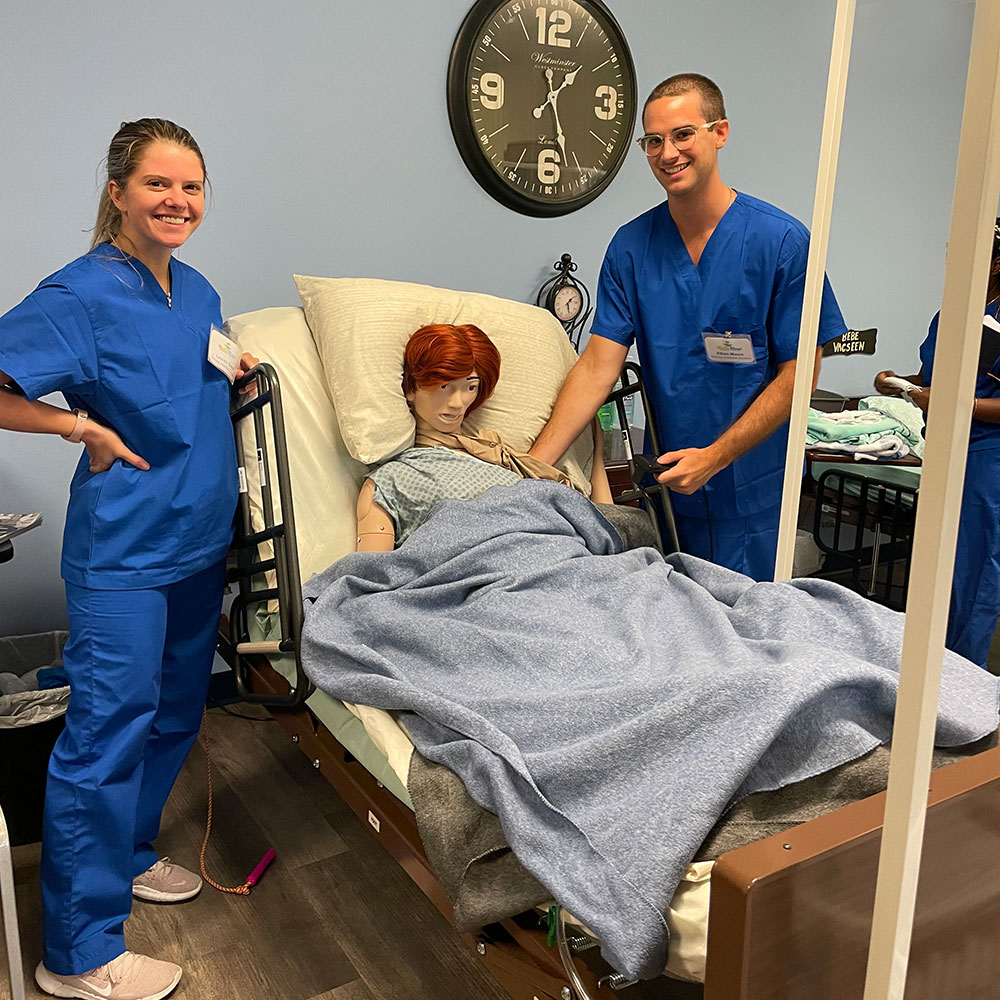CNA Classes and Nursing Pathways: What Comes Next?
Wiki Article
How CNA Classes Can Help You Introduce an Effective Career in the Medical Field
CNA classes function as a fundamental stepping stone for individuals striving to get in the clinical area. These programs convey vital abilities, consisting of effective communication and personal treatment strategies. Students take part in hands-on training, bridging theory with functional application. As the demand for medical care experts grows, the role of a Certified Nursing Assistant ends up being significantly substantial. This questions about the various profession paths and improvement chances that exist in advance for those who complete their training.
Recognizing the Role of a Certified Nursing Assistant
The function of a Certified Nursing Assistant (CNA) is indispensable to the healthcare system, acting as a crucial link between individuals and clinical team. CNAs mainly help individuals with day-to-day activities such as bathing, clothing, and consuming, guaranteeing their comfort and dignity. They are commonly the very first factor of call for people, providing essential emotional support and friendship. Along with individual care, CNAs are in charge of checking patients' critical signs, reporting modifications in condition to nursing staff, and preserving patient records. Their tasks encompass guaranteeing sanitation in client atmospheres and helping with flexibility. This function needs a caring disposition, solid interaction abilities, and the capability to function effectively under pressure. By promoting a smooth operations within health care settings, CNAs play a considerable part in enhancing the overall person experience and sustaining the wider medical group in supplying high-grade treatment.Secret Skills Obtained in CNA Classes
CNA classes gear up students with essential abilities needed for offering high-quality person treatment. One of the key skills developed is reliable communication, allowing CNAs to interact compassionately with people and clearly relay information to medical care groups. Pupils additionally find out crucial reasoning, which helps in assessing individual demands and responding properly in various scenarios.Furthermore, CNA programs highlight individual treatment abilities, incorporating support with daily living activities such as showering, clothing, and feeding - CNA Classes. Infection control strategies are one more critical component, ensuring that students understand how to keep a secure atmosphere for both individuals and themselves
Pupils get understanding in standard clinical terms, assisting in much better understanding of medical care techniques. Time monitoring abilities are grown to assist CNAs prioritize tasks successfully. Generally, these key skills develop the structure for a successful occupation in the medical area, preparing trainees to meet the diverse needs of individuals.

The Benefits of Hands-On Training
Getting sensible experience with hands-on training is essential for striving CNAs, as it connects the space in between academic knowledge and real-world application. This immersive learning approach enables students to establish crucial skills required for person treatment, such as efficient interaction, compassion, and technological capabilities. Involving in real-life circumstances allows trainees to understand the characteristics of a health care setting, promoting self-confidence in their abilities.Furthermore, hands-on training assists pupils come to be knowledgeable about essential tools and treatments, guaranteeing they are well-prepared for the difficulties of the job. It also provides opportunities to obtain instant responses from trainers, boosting the learning experience. By working straight with people under guidance, aspiring her explanation CNAs can sharpen their empirical abilities and learn to respond to numerous scenarios appropriately. Inevitably, hands-on training gears up these future health care experts with the competence and guarantee necessary to succeed in their duties.
Occupation Opportunities After Becoming a CNA
Numerous occupation possibilities await individuals who finish their CNA training, opening doors to various roles in the health care sector. Certified Nursing Assistants (CNAs) are crucial members of the medical care team, providing direct patient care in settings such as hospitals, taking care of homes, and helped living facilities - CNA Classes. Their obligations can consist of assisting with day-to-day living tasks, keeping track of important signs, and giving psychological assistance to clientsPast typical settings, CNAs might additionally find chances in specialized areas, such as recovery facilities or home health care. Additionally, some might shift into functions in administrative assistance or client campaigning for, leveraging their firsthand experience with people. The demand for CNAs continues to expand, driven by an aging population and an increased concentrate on top quality patient care. This high need guarantees that individuals entering the area have a range of options to seek, making it an eye-catching entry factor into a rewarding occupation in health care.
Pathways for Development in the Medical Care Field
Innovation in the health care field offers numerous paths for people looking for to boost their professions beyond the duty of a Certified Nursing Assistant. After acquiring experience, lots of CNAs choose to seek more moved here education and qualifications, such as coming to be an Accredited Nurse (LPN) or Registered Registered Nurse (RN) This change frequently entails registering in linking programs that identify their existing skills.Additionally, specialized qualifications in areas like geriatrics or pediatric medicines can open up doors to specific niche duties, boosting both job complete satisfaction and income potential. CNAs may likewise check out management positions, such as wellness care monitoring or client treatment control, which utilize their frontline experience in a various capacity.
Moreover, continuous professional development through workshops and seminars can keep CNAs upgraded on market standards, making them a lot more affordable prospects for development. Consequently, the healthcare field offers numerous opportunities for development, enabling CNAs to shape their job trajectories properly.
Often Asked Questions

The Length Of Time Do CNA Classes Generally Take to Full?
CNA classes usually take in between 4 to twelve weeks to complete, depending on the program structure. Elements such as course strength, scheduling, and the organization's curriculum layout can influence the overall period of training.What Is the Expense of CNA Training Programs?
The price of CNA training programs varies widely, normally ranging from $300 to $2,000. Aspects influencing this price consist of place, program length, and whether the training is offered via neighborhood universities or personal institutions.Are Online CNA Classes Available?
Online CNA classes are certainly readily available, providing adaptability for trainees. Many establishments supply virtual training, allowing people to complete coursework at their own rate while still meeting the required demands for certification in nursing assistance.What Is the Certification Exam Refine Like?
The accreditation examination process usually involves a written examination assessing understanding and an abilities linked here presentation. Prospects have to pass both components to come to be certified, ensuring they satisfy the needed expertises needed for nursing assistant functions.Do I Need Previous Healthcare Experience to Sign Up in CNA Classes?
Prior health care experience is not a prerequisite for enrolling in CNA classes. Individuals from different histories can enter the program, as it is designed to supply comprehensive training and knowledge required for successful accreditation and method.Report this wiki page